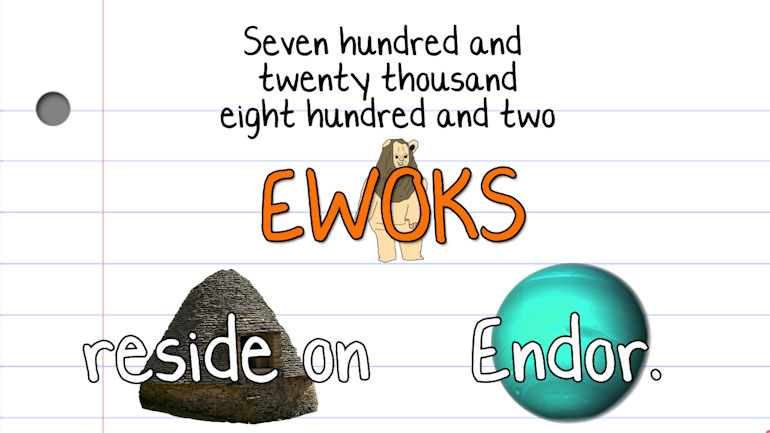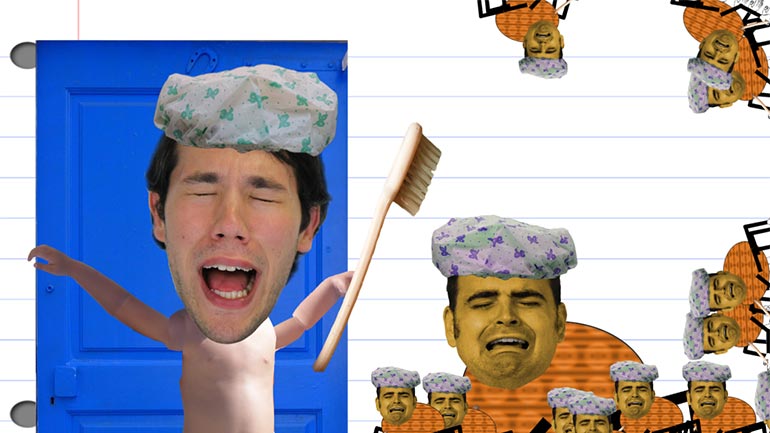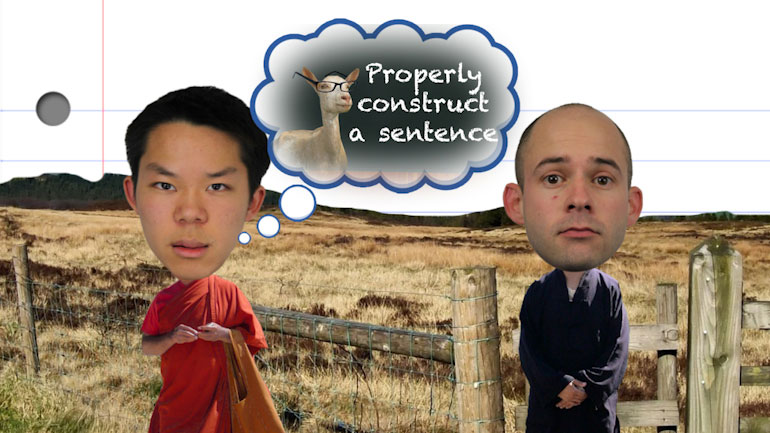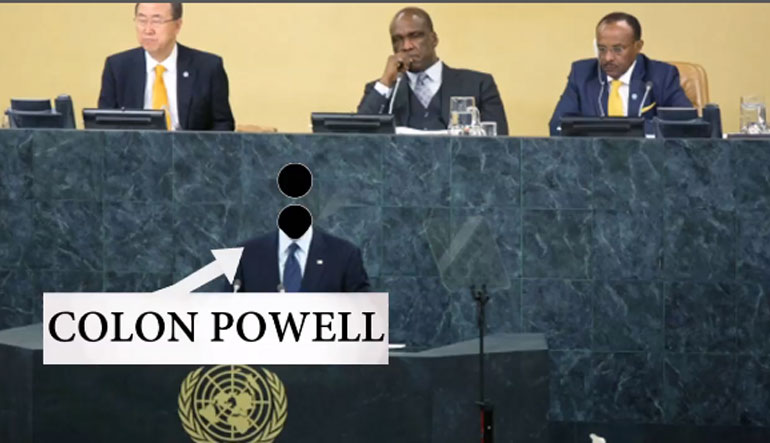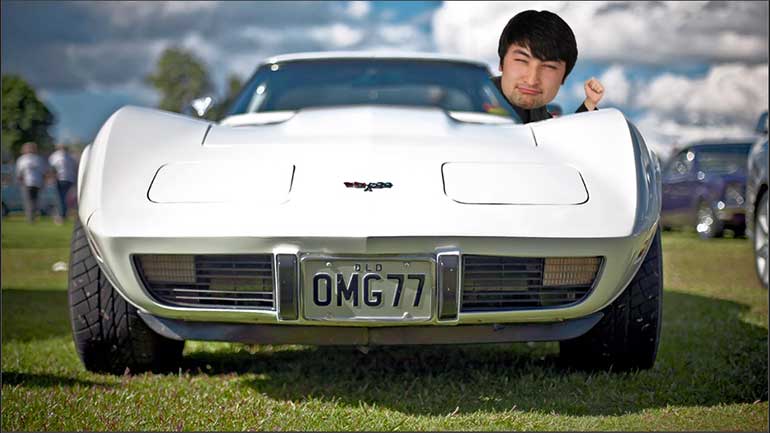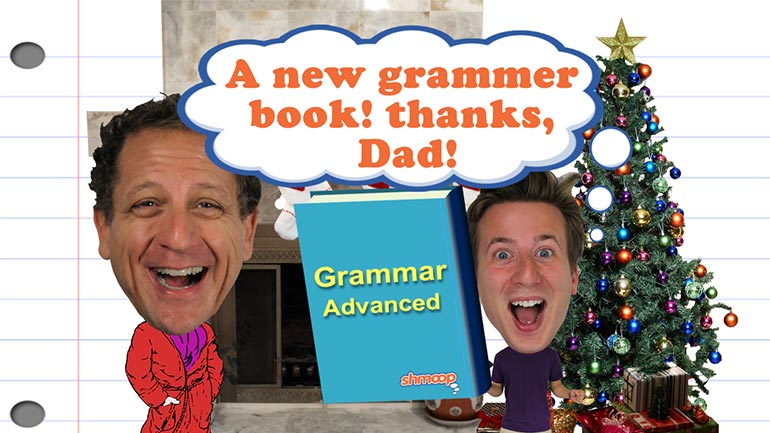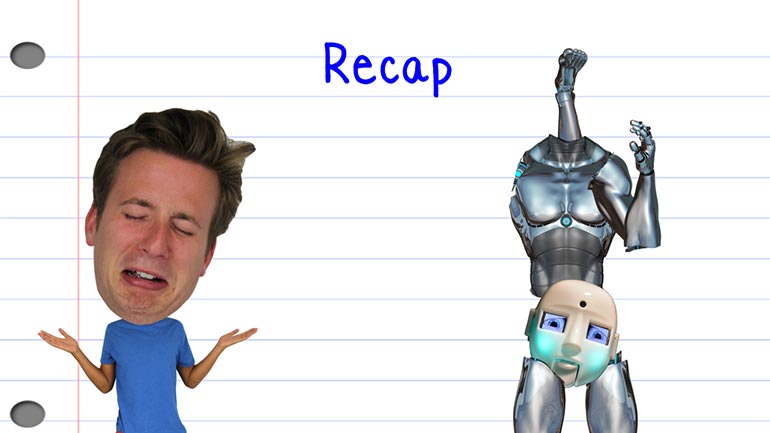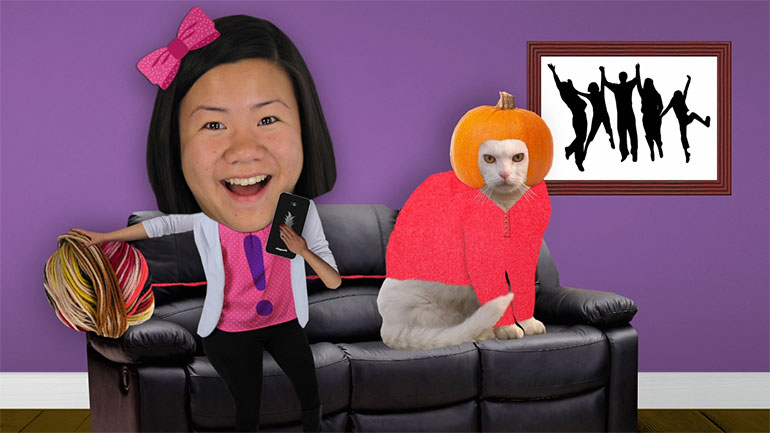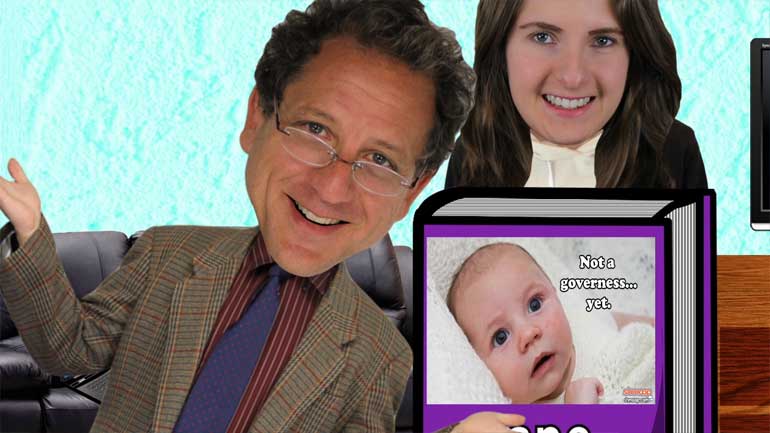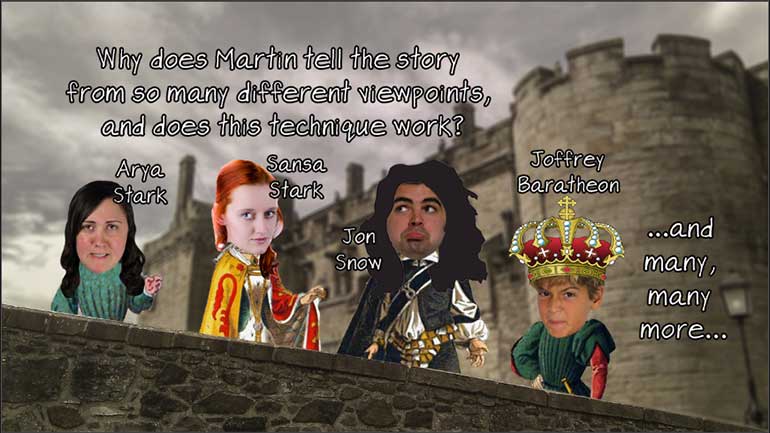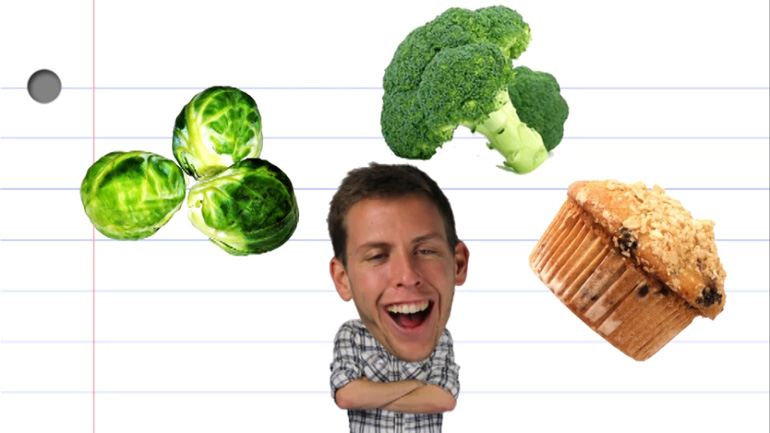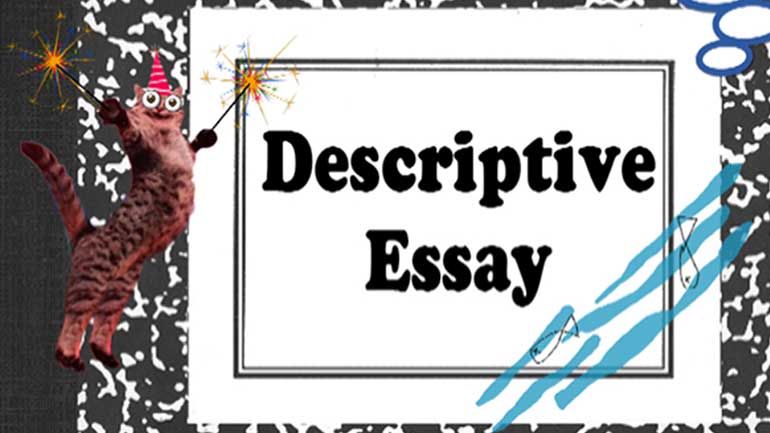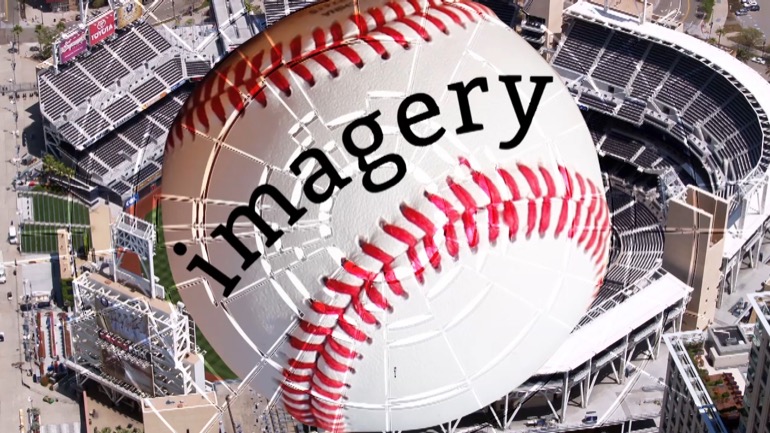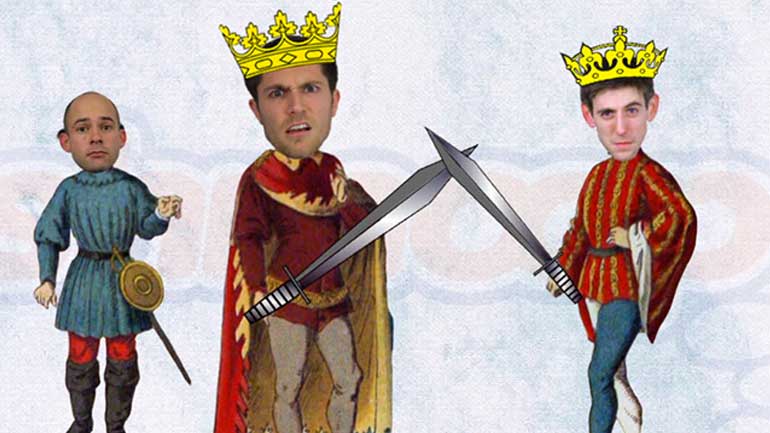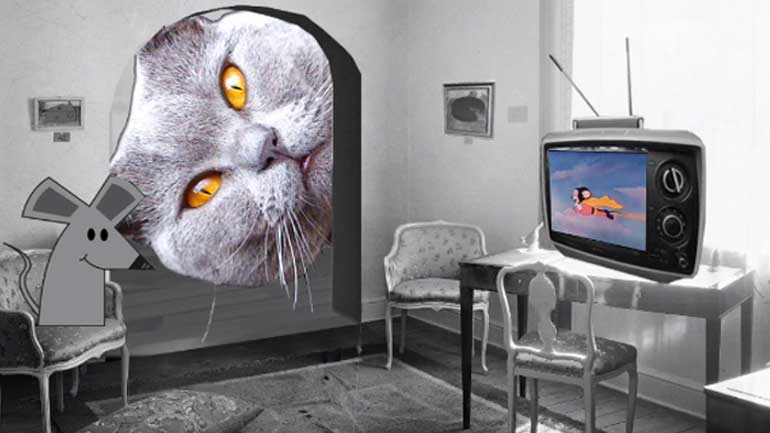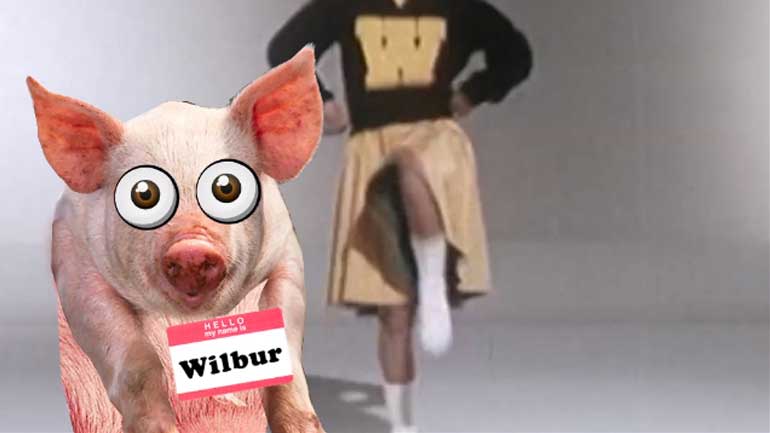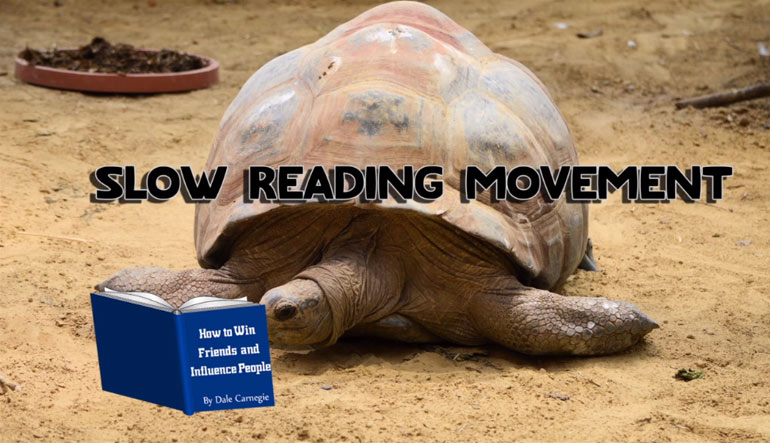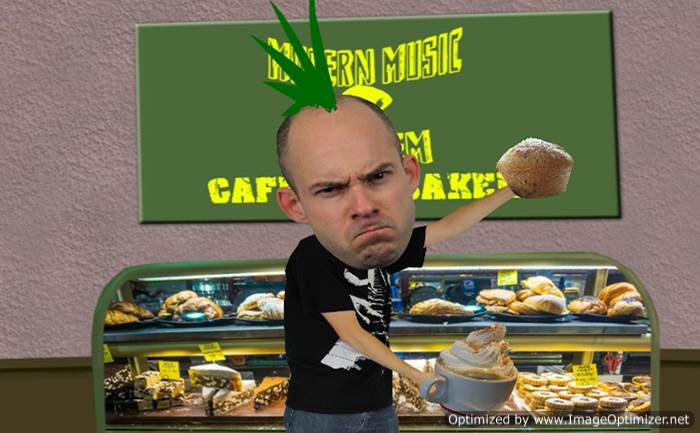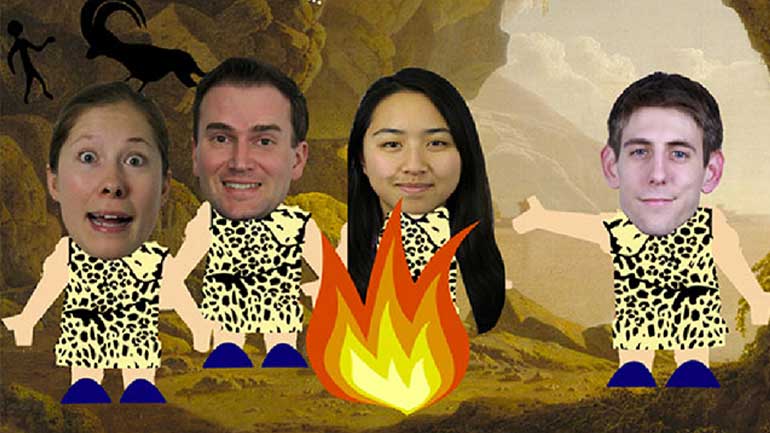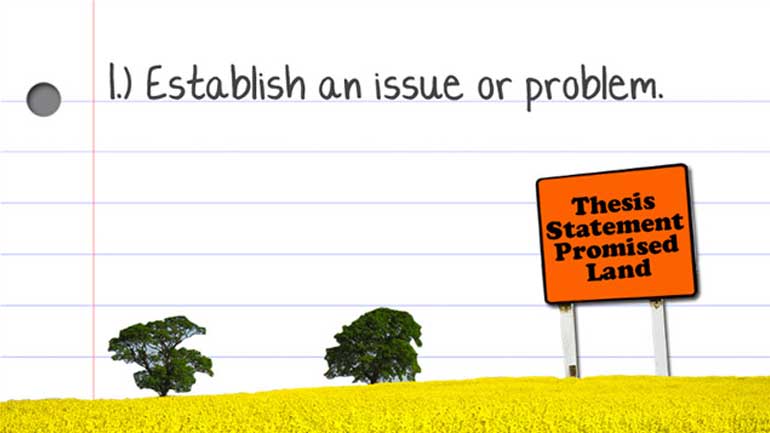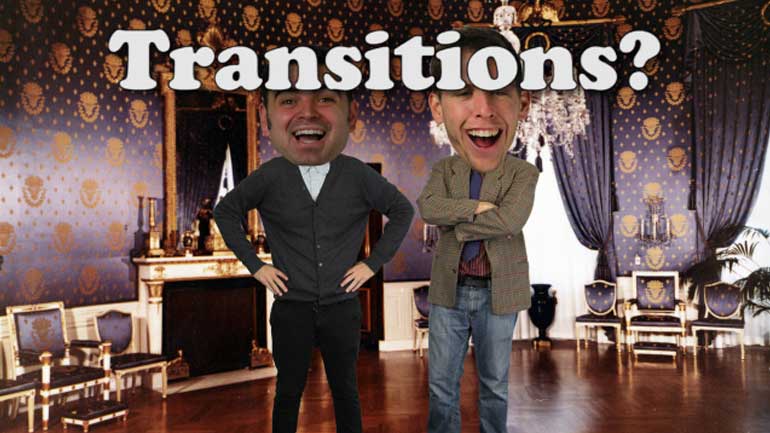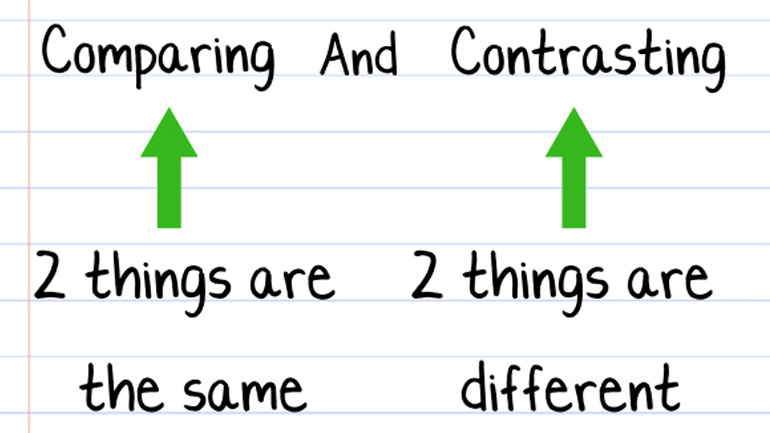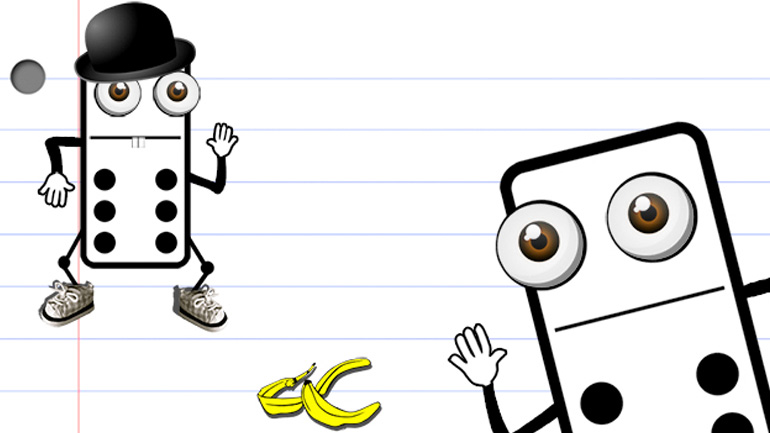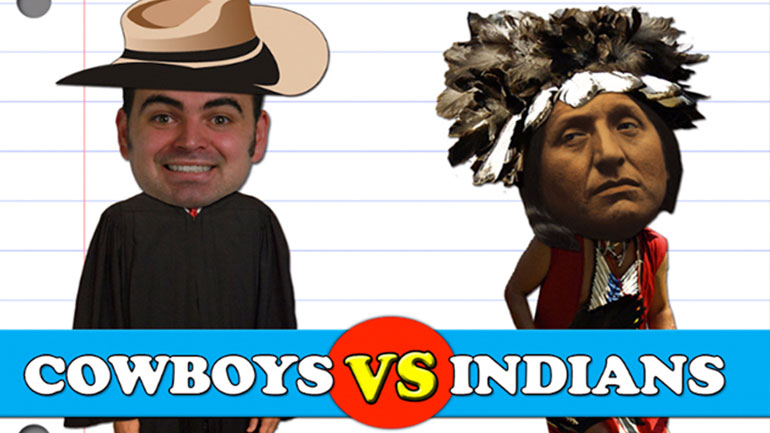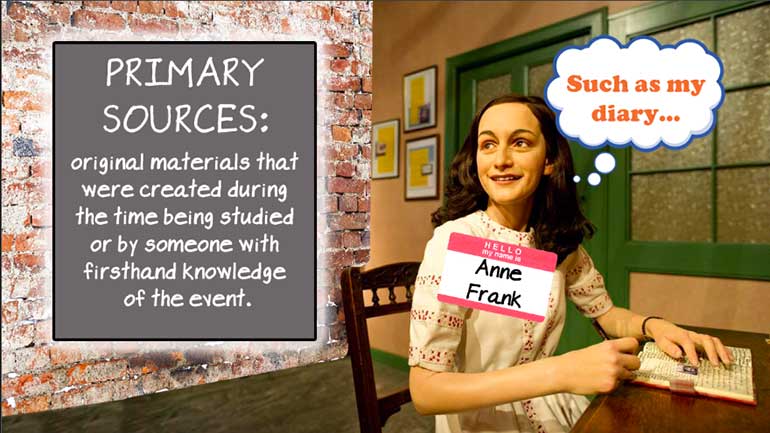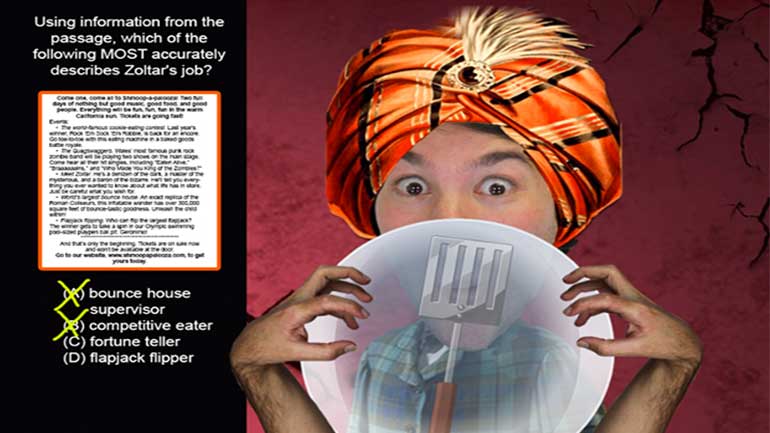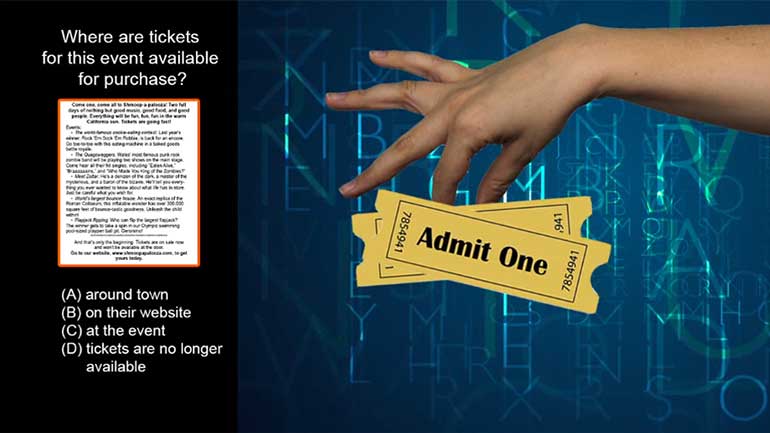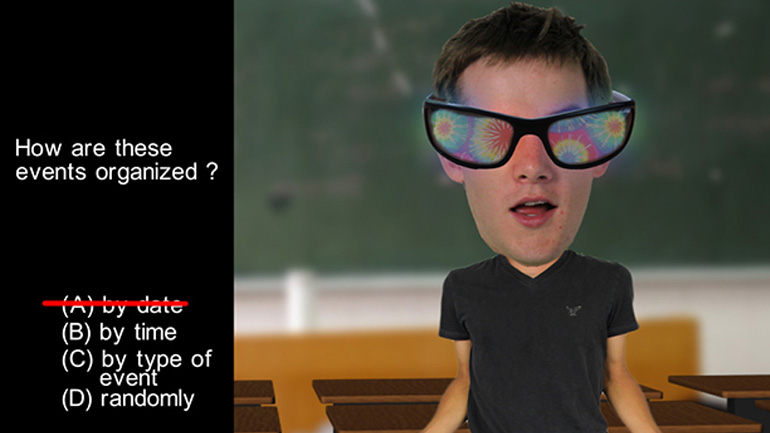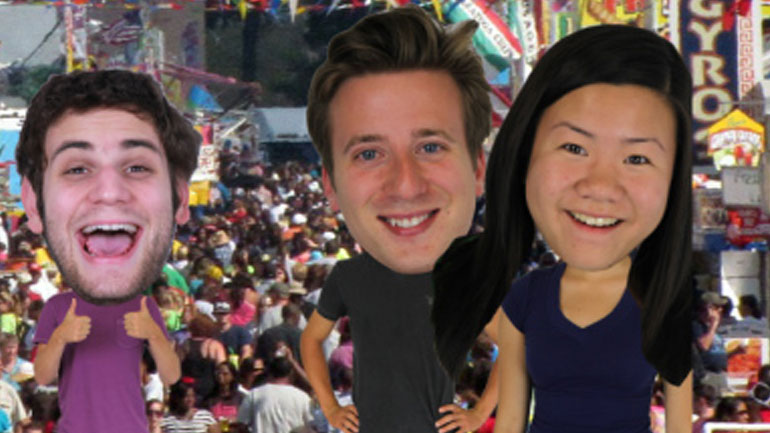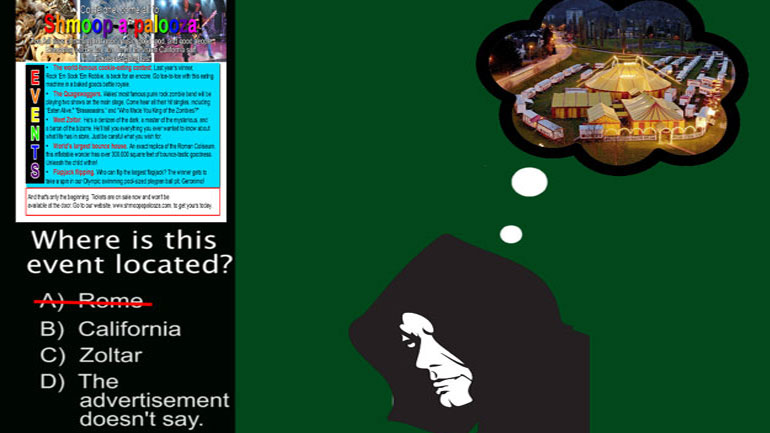ShmoopTube
Where Monty Python meets your 10th grade teacher.
Search Thousands of Shmoop Videos
Writing Videos 89 videos
Want even more deets on wordiness? Click here to review. Or take a look at our entire grammar section for all the goods.
Want even more deets on tenses? Click here to review. Or take a look at our entire grammar section for all the goods.
Want even more deets on semicolons? Click here to review. Or take a look at our entire grammar section for all the goods.
Who Is The Protagonist? 43106 Views
Share It!
Description:
Picking out the protagonist isn't always as easy as recognizing that the thing flying in the sky with a big "S" on its chest isn't actually a bird or a plane. Want tips for spotting a protagonist in the wild? If so, this video's for you.
Transcript
- 00:04
Who is the Protagonist? a la Shmoop. Books are populated with millions of different
- 00:09
characters, from kind-hearted recluses to monsters stitched together from dead body
- 00:14
parts.
- 00:16
Chances are, if you can imagine him or her, that character exists somewhere out there
- 00:20
in the literary-verse.
Full Transcript
- 00:22
Despite their diversity, most of these characters can be filtered into a variety of tried-and-true
- 00:27
roles.
- 00:28
The most popular role, by far, is the protagonist... although the antagonist might have something
- 00:33
to say about that…
- 00:35
So, how do you identify the protagonist of a novel?
- 00:40
Picking the protagonist out of a lineup isn’t as easy as identifying the heroic-looking
- 00:44
guy in shining armor with a singing sword.
- 00:47
Depending on the novel’s P-O-V, that guy could be the villain.
- 00:52
The protagonist is the guy… or gal… that you root for to triumph in the novel’s main
- 00:57
conflict.
- 00:57
They’re basically your favorite person on your favorite sports team…
- 01:01
Until they get traded to the rival team, then they become the antagonist.
- 01:06
Many times the protagonist’s name is in the title. Jane Eyre. Huck Finn. Gilgamesh.
- 01:12
The Time Traveler’s Wife… whatever her name is.
- 01:17
But not Moby Dick. Or the Mockingbird from To Kill a Mockingbird. Although we’re sure
- 01:22
if the mockingbird had a story, it would be riveting.
- 01:29
More often than not, if a book is told from the first-person perspective, the protagonist
- 01:33
is the narrator of the story.
- 01:36
Bella Swan… protagonist. Katniss Everdeen… protagonist.
- 01:40
However, just because Nick Carroway is the narrator of The Great Gatsby, it doesn’t
- 01:44
make him the protagonist. Whose name is on the cover of that book?
- 01:48
Now, just because a character is the protagonist doesn’t necessarily make them the hero of
- 01:53
the story, or even all that heroic. We’re looking at you, Bella…
- 01:59
A protagonist can also be an anti-hero. They’re not performing wild feats of derring-do, but
- 02:05
you’re still rooting for them.
- 02:06
Here are a few confessions: We kind of love to hate Scarlett O’Hara. Holden Caulfield
- 02:13
isn’t exactly a role model you’d bring home to dinner.
- 02:18
And we admit to adoring the most anti- of all anti-heroes… Satan in Paradise Lost.
- 02:24
So, when you’re trying to pick out the protagonist, remember these things…
- 02:27
The protagonist is most often the character you’re rooting for.
- 02:31
They’re usually the narrator or focal point of the story.
- 02:35
However, just because they’re the protagonist doesn’t mean they’re a saint.
- 02:39
Protagonists can have complex personalities and faults. Protagonists are people, too!
Related Videos
Want even more deets on wordiness? Click here to review. Or take a look at our entire grammar section for all the goods.
Want even more deets on tenses? Click here to review. Or take a look at our entire grammar section for all the goods.
Want even more deets on semicolons? Click here to review. Or take a look at our entire grammar section for all the goods.
Asking questions can help spice up an essay. Just make sure you don't get too spicy and forget to answer those questions. You don't want to leave y...
This video defines parallel structure and analyzes what makes it powerful (spoiler alert: sticking to a consistent part of speech, like infinitives...





